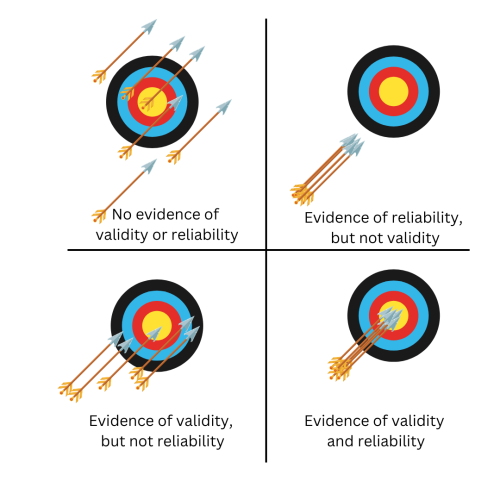
Demystifying Reliability and Validity in Educational Research
Posted
Post prepared and written by Joe Tise, PhD, Senior Education Researcher In the past, validity and reliability may have been explained to you by way of an analogy: validity refers to how close to the “bullseye” you can get on a dart board, while reliability is how consistently you throw your darts in the same […]
Continue Reading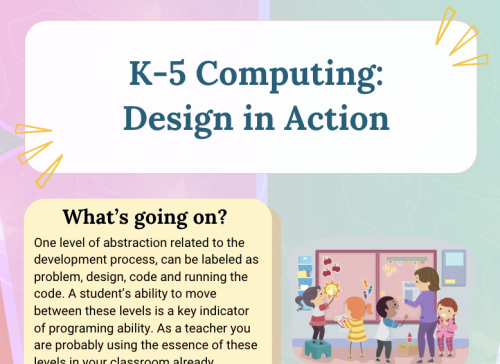
Podcasts! Considering K-5 Computing Education Practices
Posted
We’re super excited to announce our long-awaited series on K-5 computing education practices! Our podcasts provide insights from discussions among teachers as they consider meaningful research and how they could adopt new practices into their classrooms. For educators, these podcasts are meant to provide you with information on various research studies that are may be […]
Continue Reading
Join Us at the 2024 ACM SIGCSE Technical Symposium
Posted
We’re always excited to attend the ACM SIGCSE Technical Symposium, and this year is no exception! You can catch IACE team members (Laycee Thigpen, Joe Tise, Julie Smith, and Monica McGill) at the following events. (Pre-symposium events are invitation only.) For all the rest, please stop by and say Hi! We’d love to hear about […]
Continue Reading
Key Levers for Advancing K-12 Computer Science Education in Chicago, in Illinois, and in the United States
Posted
Computer science has become an essential skill for K-12 students. As the demand for computing jobs grows, there is a pressing need to advance K-12 CS education across the nation. To achieve this, there are several key levers that can advance change, including policy changes, teacher training and development, increased access to technology and resources, […]
Continue Reading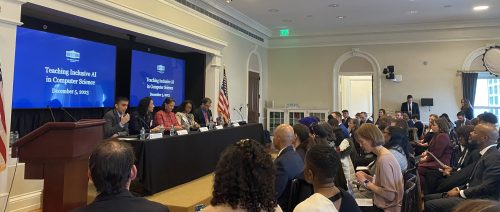
“Teaching Inclusive AI in Computer Science” Event
Posted
By Joe Tise, PhD, Senior Education Researcher, CSEdResearch.org Driving into the heart of Washington, D.C. is a unique experience. Mixed with thousands of business people, sight-seers, and the occasional politician shuffling to and fro, is the sense of optimism for what could be. Every significant social, policy, or and/or economic movement that had national—and often […]
Continue Reading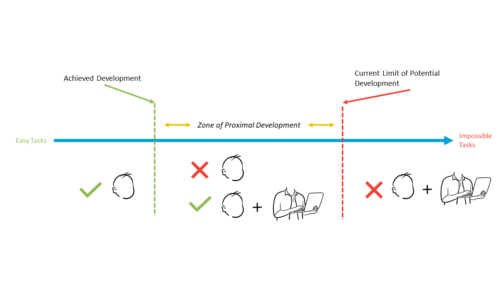
Constructivism/Sociocultural
Posted
Behaviorism highlighted the influence of the environment, information processing theory essentially ignored it, and social-cognitive theory tried to strike a balance between the two by acknowledging its potential influence. Constructivist (also known as sociocultural) theorists take it a step further. According to constructivist theories (which can either focus more on individual or on societal construction […]
Continue Reading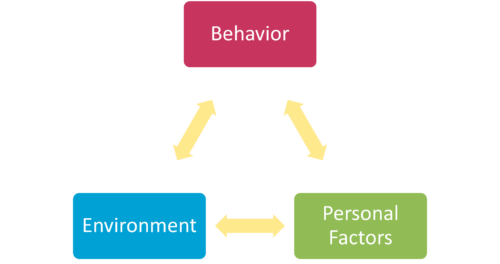
Social Cognitive Theory
Posted
Presented by Joe Tise, PhD, Educational Psychology & Senior Education Researcher at CSEdResearch.org In light of these two influential (albeit largely opposing) theories of learning, we see that both theories account for unique aspects of learning despite their limitations. Still, neither behaviorist nor information-processing theories account for one prominent form of learning, with which all […]
Continue Reading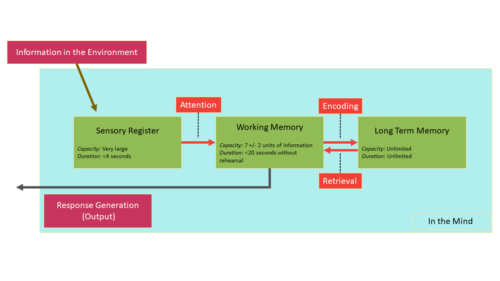
Information Processing Theory
Posted
Presented by Joe Tise, PhD, Educational Psychology & Senior Education Researcher at CSEdResearch.org The stark limitations of behaviorist theories of learning gave rise (in part) to cognitive theories of learning, the most prominent of which is information processing theory (IPT) (Atkinson & Shiffrin, 1968). As you will see, IPT is analogous in many ways to […]
Continue Reading
Introduction to Behaviorism
Posted
Presented by Joe Tise, PhD, Educational Psychology & Senior Education Researcher at CSEdResearch.org At least surface-level familiarity with Pavlov’s experiments and principles of classical and operant conditioning have become almost ubiquitous among the general public. What many may not know, however, is that classical and operant conditioning are the two primary Behaviorist theories of learning. […]
Continue Reading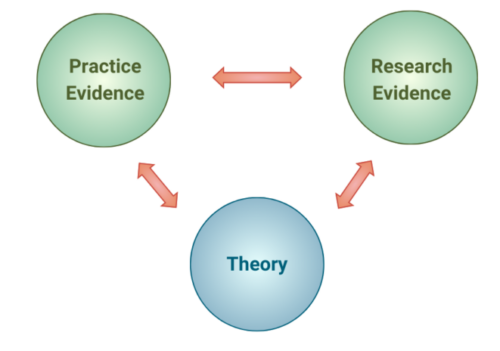
Introduction to Learning Theories Series
Posted
Presented by Joe Tise, PhD, Educational Psychology & Senior Education Researcher at CSEdResearch.org If data is a pile of bricks, theory is a building plan. Used together, a house can be built and a valid representation of truth can be uncovered. The traditional view of education research would say data without theory is no more […]
Continue Reading